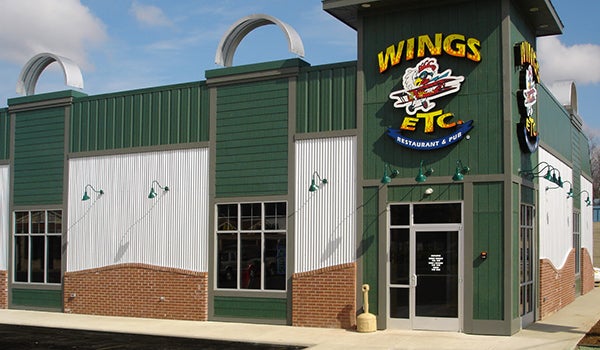Reps. Jack O’Malley, Brad Paquette host town hall on road funding
Published 9:15 am Wednesday, July 10, 2019

- Michigan Rep. Jack O’Malley speaks to a crowd of more than 50 people at his Monday town hall on road funding at the Niles District Library. O’Malley, a first-time officeholder, is the chair of the House Transportation Committee and is touring the state to host town halls on Republican-supported methods to fund road fixes. (Leader photo/BEAU BROCKETT JR.)
NILES — Subjects ranging from the weight of trucks to the future of cars fueled by gasoline were discussed at a Monday evening town hall at the Niles District Library.
Michigan Rep. Jack O’Malley hosted the event with Rep. Brad Paquette, both Republicans. O’Malley, a first-time officeholder and the House Transportation Committee chair, shared insights of House Republican ideas to fund road fixes to more than 50 attendees.
The town hall is one of about a dozen that O’Malley has hosted across the state this year. He said they come after weeks of biweekly transportation committee meetings on road construction with organizations from the private and public sectors.
The town hall also comes as Gov. Gretchen Whitmer pushes to complete a flagship issue of her campaign: to fix Michigan’s roads largely with a 45-cent gas tax hike.
After an introduction by Paquette, who represents the greater Niles area, O’Malley, who represents four counties in northeast Michigan, discussed the realities of road policy before going into House Republicans’ plans.
“This isn’t just about slapping on some blacktop and throwing on some concrete,” he said.
O’Malley said he found that people often hold onto a single fact about roads that shapes their opinion.
“That nugget became the thing that they hung onto when they got into a discussion or an argument about roads,” he said. “I thought, ‘We need to find not the nugget, but the whole truth.”’
The bigger picture of road policy from the bi-weekly committee meetings, he said, has shaped House Republicans’ plans and ideas to fund roads without Whitmer’s gas tax hike.
The center policy of the current plan, which has not yet been proposed as a bill, is to designate all of Michigan’s current gas tax toward road funding. Currently, he said, about $855 million helps fund schools and revenue-sharing, where the state government gives local government funding at their discretion.
About $500 million from taxes gained through online purchases would be designated for school aid instead, he said.
“Some of these things you might grumble about because you don’t want to let go of your nugget,” he said. “Understand that there’s a deeper question or a deeper answer.”
O’Malley also said House Republicans were considering about 15 proposed ideas regarding roads, largely from the transportation committee meetings. Some are meant to increase local government’s ability to make decisions on their spending.
The northern Michigan representative gave insights into a few. Currently, any county project more than $100,000 state dollars requires paperwork and “hoops” for approval, he said. He wants to raise the cap to $500,000.
He also wants to allow counties to fund primary and secondary roads as they see fit, so long as they have an asset-mapping plan.
The transportation committee is also looking into toll roads and toll bridges whose funds would go directly back into the roads and bridges they are set up at. Experts, he said, have told the committee that I-94 and I-96 would be the most ideal roads for tolls.
“I think that our plan, our House plan, makes a ton of sense,” O’Malley said. “It’s saying, ‘Hey, let’s have a responsible budget, and let’s have some policy and legislation that spends the money smarter and gets more money to our locals.”
After O’Malley discussed the House Republican plan and ideas, he opened the town hall to a half-hour Q&A session.
Some attendees questioned why the Republicans’ plan cut revenue sharing while the party’s ideas for road funding included those meant to make it easier for local governments to start road projects.
O’Malley did not directly state why this was so.
Other attendees offered suggestions to O’Malley and his party, like using state universities to conduct road research and considering a potential increase in vehicles that do not use gasoline.
O’Malley appeared to support both suggestions, citing the need for more road research as a reason why he wanted to create an MDOT innovation committee.
He also said that gasoline cars are phasing out, which is a reason why he does not support a gas tax hike.
“Everybody knows it, and it’s something we’re looking at towards the future,” he said.
Paquette, who is not part of the transportation committee, thanked attendees for coming to the town hall.
“Folks that are active and will get engaged is what we definitely need in our communities, and this showing warms my heart,” he said.
Both Paquette and O’Malley said they would vote against Whitmer’s proposed gas tax hike, which she said would raise more than $2 billion a year for road funding.
According to the Senate Fiscal Agency, at least $3.4 billion a year is needed to adequately fix Michigan’s roads. A mile of highway alone costs $3.45 million to replace.





